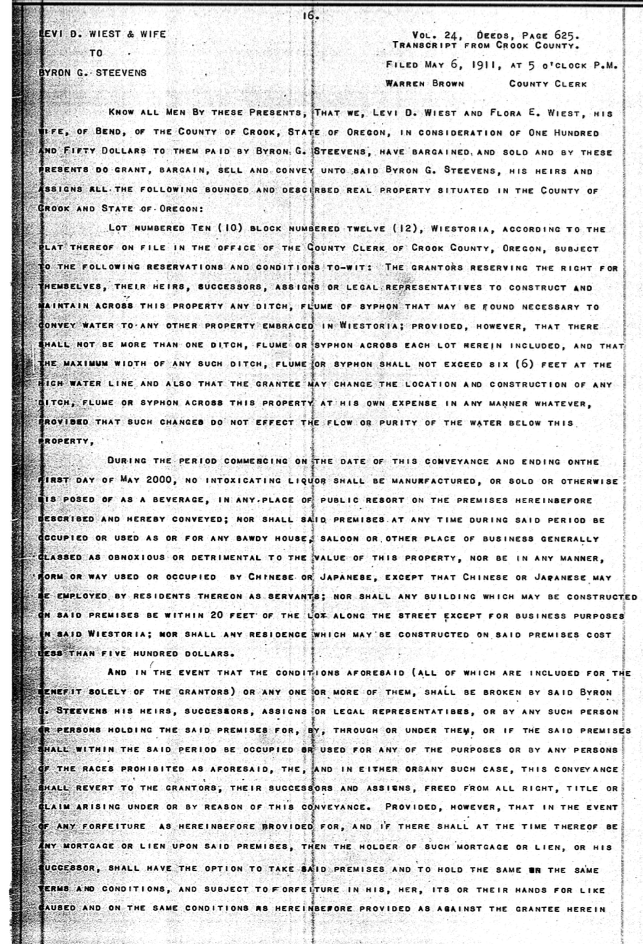Editorial: The racial covenants of Bend’s past
Published 5:00 am Saturday, April 6, 2024

- Racial covenant language in a Bend title.
How should children be taught about racism? What should they learn?
A good place to start in Bend might be to look at the city’s past.
Trending
The Central Oregon Black Leaders Assembly found numerous examples of racial covenants in Bend.
Here is one. It was 1911. This part of Oregon was still called Crook County. Deschutes County had not been formed. This racial covenant was for a property in the subdivision in Bend called Wiestoria. Just to be clear, that is not the same thing as the Village Wiestoria development on Bend’s east side.
The restrictions of the sale from “Levi D. Wiest & Wife to Byron G. Steevens” stipulated: From 1911 through May 2000 premises may not “be in any manner, form or way used or occupied by Chinese or Japanese, except that Chinese or Japanese may be employed by residents thereon as servants. …”
If these conditions or others were violated, the property would revert back, the covenant said.
Racial covenants became clearly unenforceable with a U.S. Supreme Court case, Shelley v. Kraemer, in 1948. They did continue to be included for some properties until the 1960s when they were prohibited by fair housing laws. The covenants don’t have any legal weight today. The language lingers in some chains of title.
Think about, though, the intent and the weight they once may have had. How were you able to afford your first home? Maybe you saved and borrowed. Maybe your family helped. For some families, it may have helped that they could freely buy their home and build wealth that way. We do know in Bend there were clear examples where it was surely much harder for others.
Trending
There are at least two points to draw out.
The first is about the past. Bend had racial covenants. The covenants are ugly reminders. We owe Riccardo Waites and the Central Oregon Black Leaders Assembly for the Good Deeds program for highlighting them.
The second is about the future. Should the racial covenants be required to be removed? They may continue to send racist signals to some buyers and sellers.
The more substantial issue is that after the courts made the covenants illegal and fair housing laws prohibited them, it did open up housing opportunities. But it did not mean communities were integrated.
The City of Bend is in the process of reviewing its fair housing policies, where the discussion of racial covenants came up in a presentation by Mellissa Kamanya, affordable housing coordinator. You can find more about that review here: tinyurl.com/bendfairhousing.
And you can find a more about the Good Deeds program of the Central Oregon Black Leaders Assembly at tinyurl.com/COBLAdeeds.








